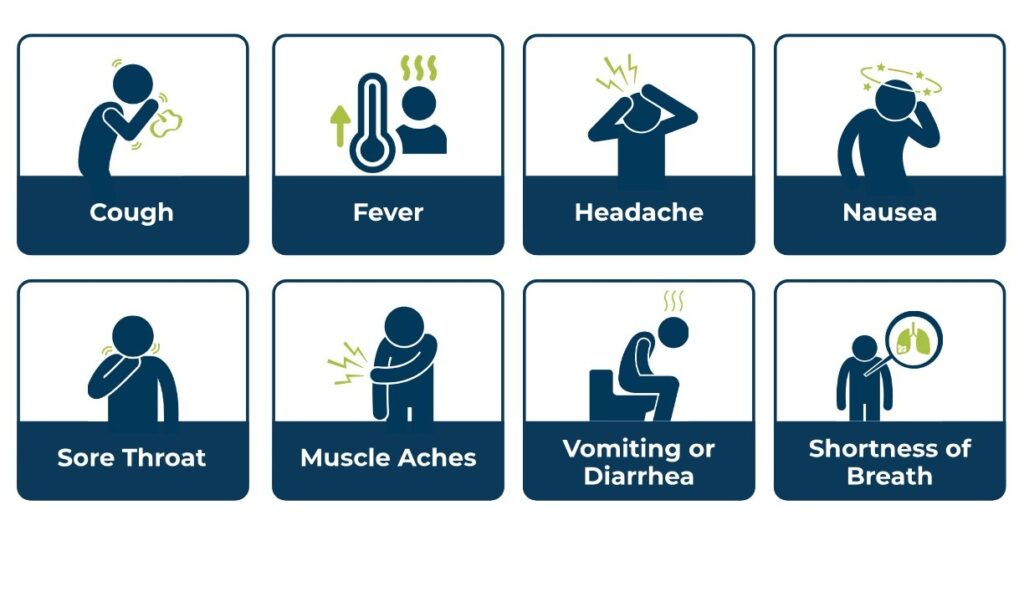The Government of Brazil declared a nationwide state of animal health emergency on 22 May, after the country reported its first ever case of the highly pathogenic H5N1 avian influenza virus in wild birds. The state of emergency will be in effect for a period of 180 days. The first outbreak of the virus was reported on the coast of Espirito Santo state. Eight cases of the H5N1 virus have been detected in states in the southeastern part of the country, including seven cases in the state of Espirito Santo and one in Rio de Janeiro state. The animal health emergency has been issued as a precaution, as the detection of avian influenza in wild birds in some countries has been followed by reports of avian influenza in the commercial poultry.
What is avian influenza virus?
Avian influenza, commonly known as bird flu, is a viral infection, which causes severe respiratory disease among birds. H5N1 is the most common strain of the avian influenza virus. It is caused by an influenza type A virus and can infect birds such as chickens, domestic ducks, geese, turkeys, pheasants, quail, wild water fowls among others.
Human transmission
- The avian influenza virus can infect humans as well as other animals through contact with infected birds, living or dead.
- The avian influenza virus is not transmitted by the consumption of meat or eggs.
- Currently, avian influenza is not known to spread through human-to-human contact.
- According to Health Ministry, samples of 38 suspected cases of the avian influenza virus in humans have been tested so far from the state of Espirito Santo and Rio de Janeiro, all of which came back negative.
- According to World Health Organization (WHO), past cases of H5N1 avian influenza virus in humans reported 53 percent mortality.
Symptoms of avian influenza in birds
- Swollen heads
- Dullness
- Lack of appetite
- Respiratory problems
- Diarrhea
- Significant drop in egg production
Symptoms of avian influenza in humans

Treatment of H5N1 avian influenza
Infected humans may be given an antiviral medicine such as peramivir, oseltamivir or zanamivir to help reduce the severity of the condition, prevent complications as well as to improve the chances of survival.

Impact of the detection of H5N1 avian influenza cases in Brazil
- As per guidelines of the World Organization for Animal Health, detection of H5N1 strain of avian influenza in wild birds does not lead to trade bans.
- All the avian influenza cases have been recorded in the southeast of Brazil, located far from the main chicken producing centers concentrated in the south of the country.
- The Brazilian Association of Animal Protein (ABPA) announced that the country, which is the world’s biggest chicken meat exporter, maintains the status of ‘free’ of avian influenza, meaning an impact on the export of chickens is less likely.
- The Brazilian government has shared the preventive measures being put into place with the main meat importing nations.
- Preventive measures have been reinforced by chicken producers on chicken farms to deal with the virus.
What does the state of animal health emergency mean?
- The state of animal health emergency allows the authorities to carry out contingency plans aimed at controlling the transmission of the virus.
- These contingency plans include the adoption of stricter surveillance measures on farms, imposition of access controls on people in areas with sources of infection, and an obligation to report all suspected cases of the virus.
- The Agriculture and Livestock Ministry created an emergency operations center for the coordination, planning and evaluation of national efforts related to the avian influenza.
- As part of the state of animal health emergency, the Ministry of Agriculture and Livestock continues to warn the public to avoid collection of sick or dead birds.
Reports of H5N1 avian influenza in other areas of South America
- H5N1 avian influenza spread southward in the Americas since the latter half of 2022.
- H5N1 avian influenza virus has been recorded in sea mammals such as sea lions in Chile, apart from the poultry.
- Both Chile and Ecuador have each reported a human case of the H5N1 virus.
Workplace Recommendations
- Businesses located in close vicinity of zoological parks and adjoining areas, where birds are found in large numbers, are advised to adopt best practices to avoid spread of avian influenza virus.
- Businesses where mess or canteen services or cafeterias are functional are advised to adopt best cooking practices to avoid the risk of transmission.
- Employees must be educated about the symptoms of H5N1 avian influenza virus, as well as measures to prevent and control its infection.
- Advised to provide hand sanitizers in common areas such as entrances, meeting rooms and cafeterias to ensure the maintenance of personal hygiene.
- Advised to share regular updates and reminders about health and safetyprotocols.
- Advised to dial 136 or follow the official website of Brazilian Ministry of Health: https://www.gov.br/saude/pt-br or the official Twitter account Ministry of Health (@minsaude) at: https://twitter.com/minsaude to stay informed about the H5N1 avian influenza infection in the country.

Best Practices
Things to avoid:
- Half-boiled eggs and undercooked chicken
- Direct contact with birds
- Direct contact with raw meat
- Keeping raw meat in open
- Visit to poultry farms, bird markets etc.
- Avoid touching surfaces that may have been contaminated with saliva, mucous or feces from birds.
Things to do:
- Wash hands regularly
- Maintain personal hygiene and cleanliness in surroundings
- Use mask or gloves when dealing with raw chicken or chicken products
- Eat only those meat and meat products that are completely cooked i.e. at 100 degrees Celsius.


